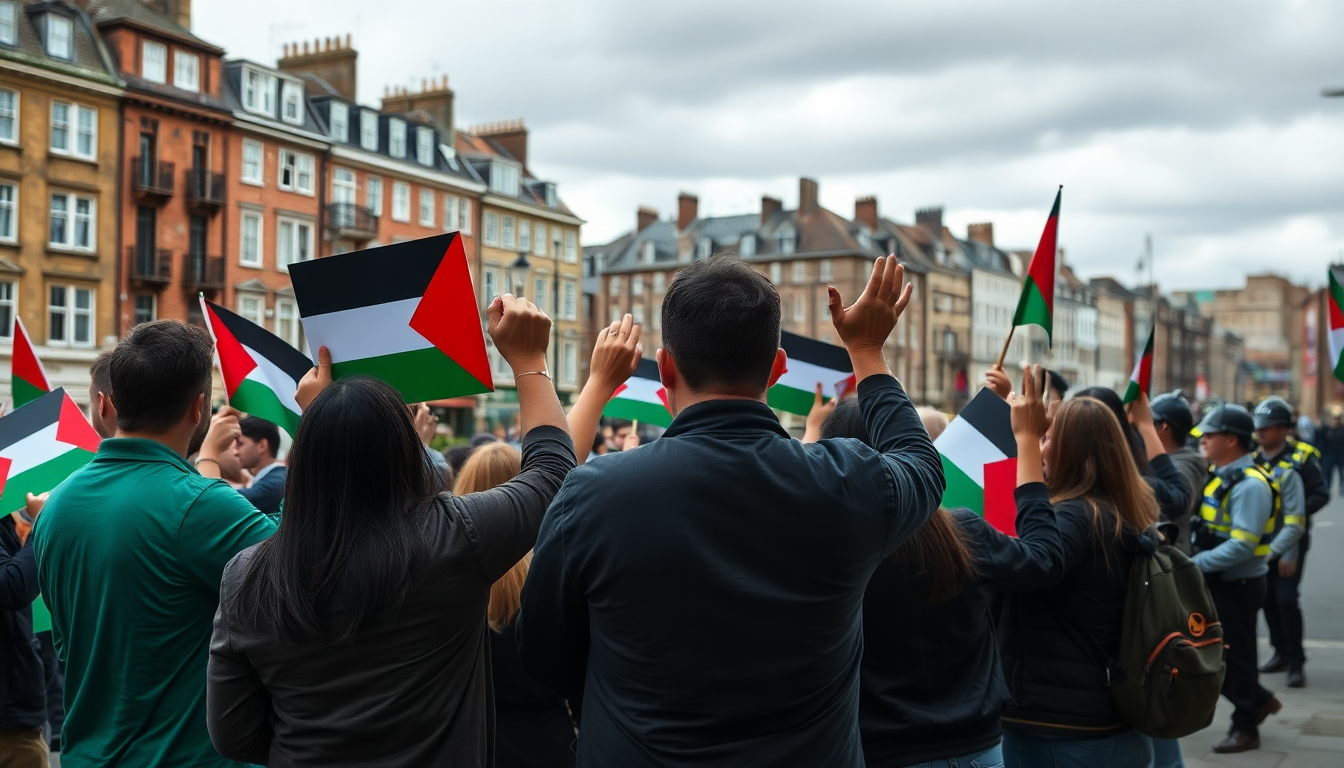Table of Contents
The recent ban on the pro-Palestinian activist group Palestine Action in the UK has sparked significant protests in London, leading to the arrest of nearly thirty individuals. This situation highlights the escalating tensions surrounding activism related to Palestine and the legal challenges that supporters now face. As the Metropolitan Police moved quickly to enforce the new regulations, questions about freedom of expression and the right to protest in the UK have come into sharp focus.
Understanding the Ban and Arrests
Just hours after the ban on Palestine Action took effect, the Metropolitan Police announced that they had made a total of 29 arrests during a protest in Parliament Square. The police indicated that those detained were suspected of offenses under the Terrorism Act 2000. This legal framework carries heavy penalties, raising alarms about a potential chilling effect on activism and public demonstrations throughout the UK.
Palestine Action has been labeled a proscribed group, a classification that holds substantial legal implications. The police’s actions reflect a broader governmental strategy that has intensified over recent months, particularly after incidents where activists vandalized military property, resulting in considerable financial losses. Critics from various civil liberties organizations and free speech advocates argue that the decision to ban the group sets a troubling precedent for the suppression of dissenting voices.
Public Response and Free Speech Concerns
The protests that erupted following the ban were filled with passionate displays of solidarity for Palestine Action. Demonstrators carried signs voicing their opposition to what they described as genocide, alongside affirmations of support for the group. These acts of dissent were met with police intervention, which many observers interpreted as an infringement on the right to protest.
Supporters and passersby expressed their frustration with the police’s actions, questioning their motives behind the arrests. Chants of “From the river to the sea, Palestine will be free” resonated throughout the square, showcasing the protesters’ determination to continue advocating for their cause despite the new legal restrictions. This public outcry underscores a societal divide regarding the legitimacy of the state’s actions and the right to express political beliefs.
Legal Implications and Future Outlook
Legal experts have highlighted serious repercussions for individuals who choose to support Palestine Action. Under the provisions of the Terrorism Act, even holding a placard in support of the group could lead to imprisonment. This alarming development has ignited discussions about balancing national security with civil liberties, particularly in the realm of political protests.
The government’s approach has faced criticism for potentially undermining democratic values, as it grants authorities broad powers to suppress opinions that are deemed objectionable. Activists and legal advocates worry that this trend could result in increasingly restrictive measures on protest rights, which are essential to a democratic society. As public sentiment continues to shift, the long-term effects of these legal measures will likely reshape the landscape of political expression in the UK.


